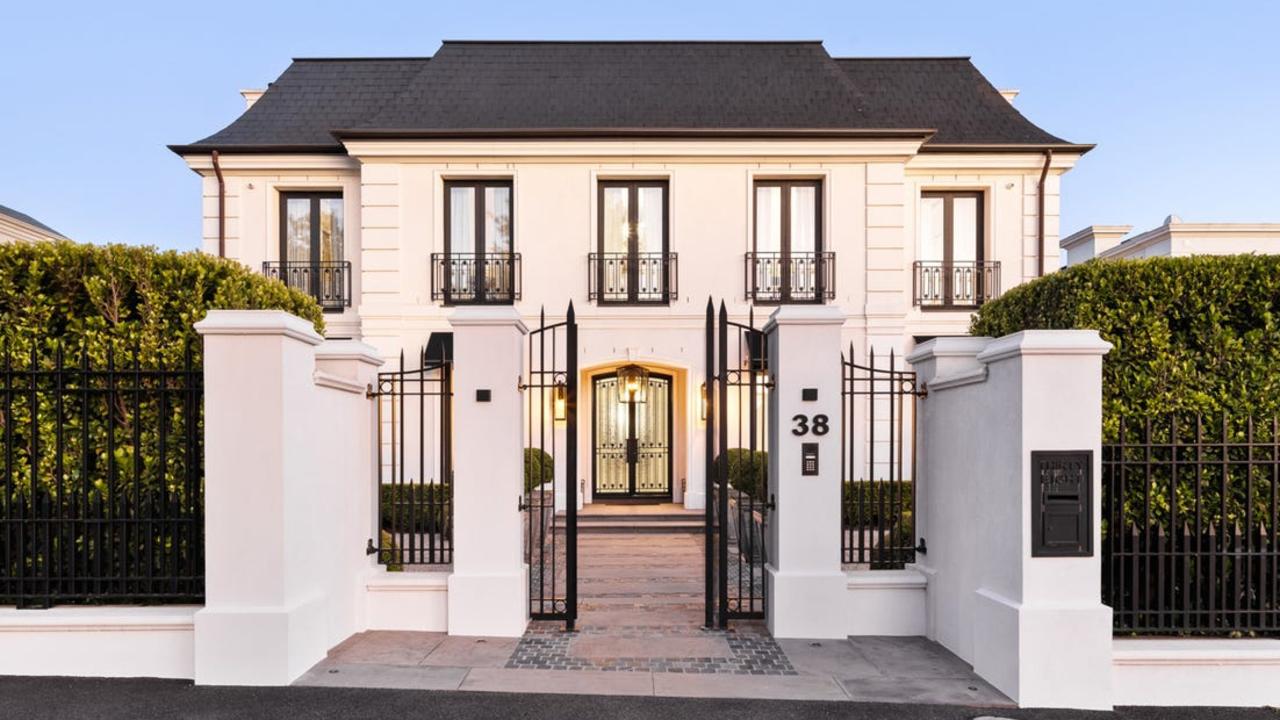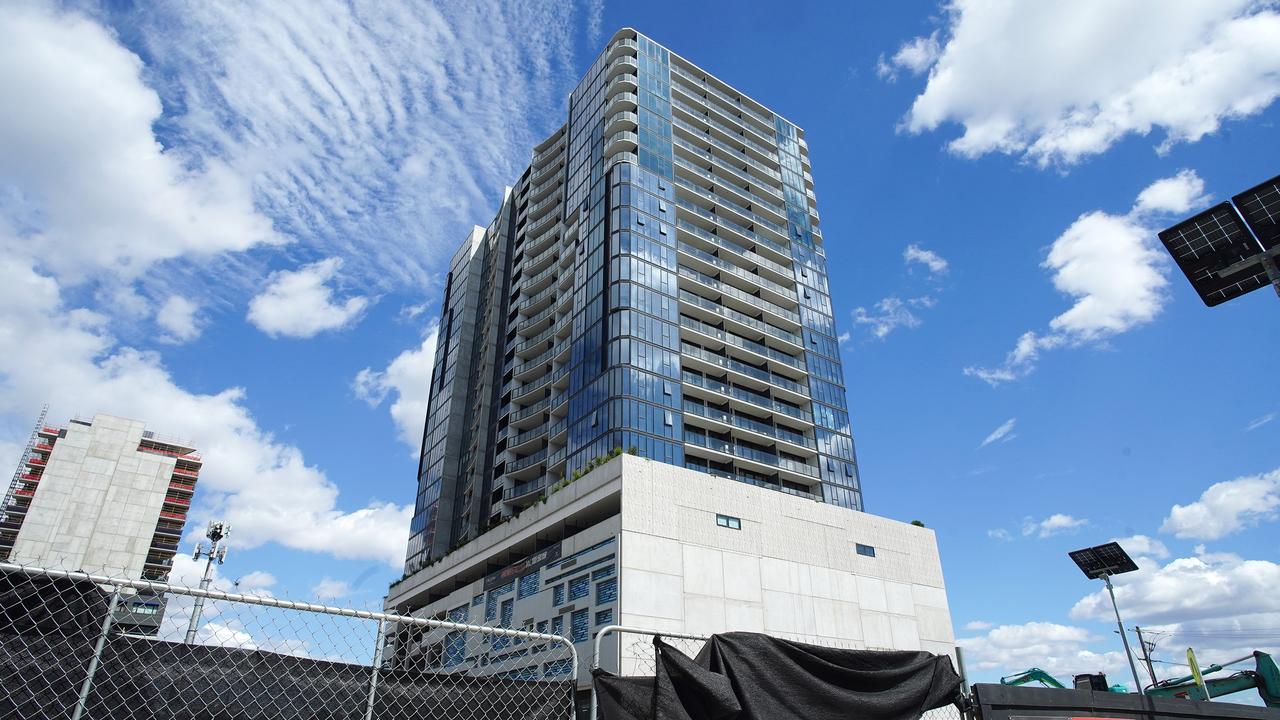Anthony Albanese gives keynote address at Shangri-La Dialogue in Singapore
Anthony Albanese has used a major speech in Singapore to warn against portraying Asia as a “potential theatre” for conflict between the global superpowers.
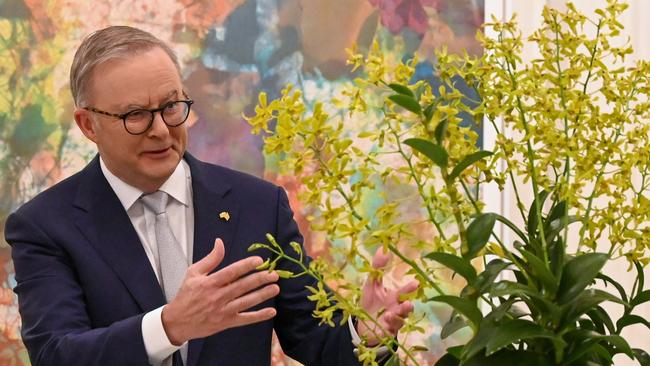
News
Don't miss out on the headlines from News. Followed categories will be added to My News.
Prime Minister Anthony Albanese has warned it is “dangerously wrong” to portray Asia as a “potential theatre” for conflict between the global superpowers.
In a watershed speech to Asia’s premier defence summit in Singapore on Friday night, Mr Albanese urged nations to do work for the continued peace, prosperity and stability of the region, which he said could only be secured through “collective responsibility”.
He said diplomacy would be essential to preventing conflict between China and the US in the Indo-Pacific, calling for strategic “guard rails” to prevent hostilities.
Mr Albanese moved to allay ASEAN countries’ concerns about the landmark AUKUS deal by reiterating Australia’s commitment to the Pacific and its obligations under the nuclear Non-Proliferation Treaty.
He reinforced that dialogue was crucial to prevent a worst-case scenario, warning the “silence of the diplomatic deep freeze” bred suspicion that made it easier for nations to “assume the worst of one another”.
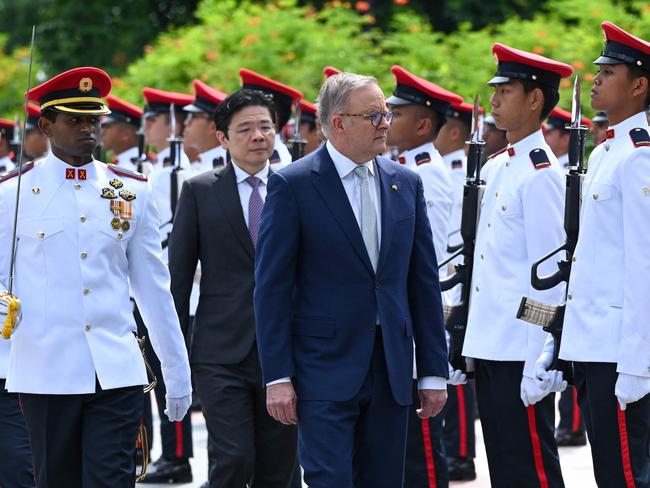
“If you don’t have the pressure valve of dialogue, if you don’t have the capacity – at a decision-making level – to pick up the phone, to seek some clarity or provide some context, then there is always a much greater risk of assumptions spilling over into irretrievable action and reaction,” Mr Albanese said.
“The consequences of such a breakdown – whether in the Taiwan Strait or elsewhere – would not be confined to the big powers or the site of their conflict, they would be devastating for the world.
“That’s why as leaders in this region – and as citizens of it – we should be doing everything we can to support the building of that first and most fundamental guardrail.”
The speech at the 20th Shangri-La Dialogue, touted as Mr Albanese’s biggest international address this term, was made in front of senior officials from 40 nations with US Secretary of Defence Lloyd Austin and China’s Minister of National Defence LiShangfu also due to attend.
In his strongest remarks yet, Mr Albanese warned that “any unilateral attempt to change the status quo by force: be it in Taiwan, the South China Sea, the East China Sea or elsewhere, the risk of conflict will always far outweigh any potential reward”.
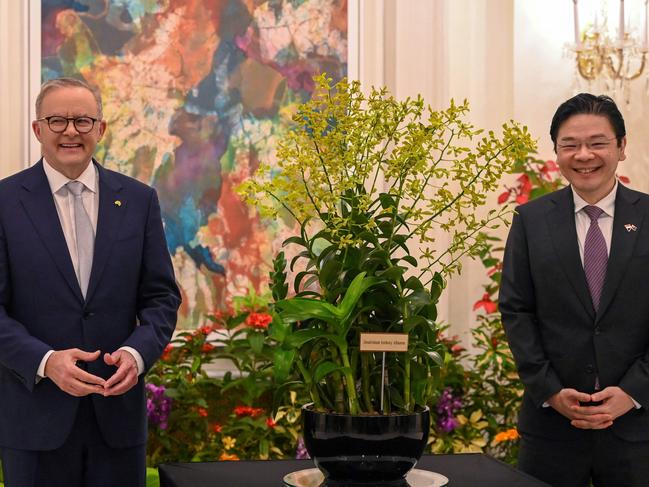
Tensions between China and the US have continued to flare this week after Beijing rejected a meeting with the US on the sidelines of the conference, and reports surfaced about the Chinese performing a dangerous manoeuvre while intercepting a US plane overthe South China Sea.
Earlier on Friday, Mr Albanese met for key talks with Singapore’s Deputy Prime Minister Lawrence Wong and President Halimah Yacob.
The Prime Minister will on Saturday travel to Hanoi, where he will meet with business leaders, as Australia seeks to bolster economic ties.
Defence Minister Richard Marles was also in Singapore for the conference, where he will participate in the 12th Australia–Japan–United States Trilateral Defence Ministers’ Meeting with Japan’s Minister Hamada Yasukazu and Mr Austin.
Mr Marles will then travel to Jakarta to meet with his defence counterpart, which will be a key meeting following Indonesia’s concerns about the AUKUS deal, before travelling to Vanuatu where he will meet with leaders to discuss security and development.
Albo’s flower power
The Prime Minister received a ceremonial welcome at the presidential palace and had a yellow orchid named after him – the Dendrobium Anthony Albanese.
Mr Albanese said it was an honour to have the “beautiful” yellow orchid named after him.
He then met with Mr Wong, who stepped up for the annual leaders’ meeting after Prime Minister Lee Hsien Loong again tested positive for Covid-19, where the two partners progressed the Green Economy Agreement signed last year.
Mr Albanese, who said there was no closer friend in the region than Singapore, announced three new initiatives to advance the goals of the deal.
They include a “green shipping corridor” that will support net zero shipping between the nations, a new $20m grant program to help businesses develop decarbonisation solutions, and greater support for private sector collaboration on green trade and commerce.
The partners will also seek to strengthen the security and resilience of supply chains, to ensure critical goods can weather shocks and continue to flow.
“The relationship between us is strengthened as we build these personal relationships between our leadership and between our peoples,” Mr Albanese said.
Mr Wong also signalled Singapore’s interest in upgrading free trade agreements between South East Asian countries and Australia and New Zealand.
He welcomed the landmark AUKUS deal and the Quad security dialogue between Australia, India, Japan and the US, adding that Southeast Asian nations were concerned about being forced to choose a side amid the tensions between China and the US.
But he said support would be contingent on leaders ensuring the region works together to overcome challenges, and that they uphold a rules-based order based on international law.
“We are in a troubled world that’s filled with geopolitical uncertainties and tensions,” Mr Wong said.
“But the strong and enduring partnership between Australia and Singapore gives us confidence to navigate our way through stormy weather and to take our countries forward.”
The visit marks the 50 years of diplomatic relations with Vietnam, which is expected to become even more pivotal going forward, given its proximity to China and the challenges in the region.
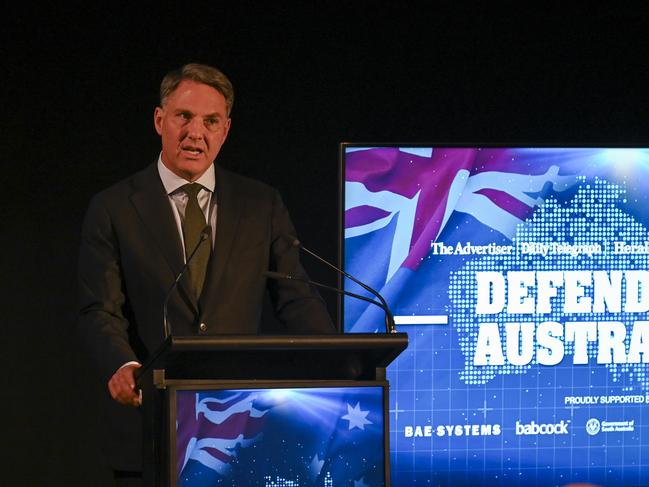
China’s military spend boost
China’s military spend is set to accelerate in a bid to boost its capabilities, according to an alarming new report.
The latest Asia-Pacific Regional Security Assessment, published by the International Institute for Strategic Studies, also found China’s Belt and Road Initiative has “failed to live up to its anticipated potential” as an important instrument of its international power.
But experts warn its authority remains a leading long-term challenge to international order in the Asia-Pacific.
They believe the war in Ukraine could drive more determined efforts from Beijing to develop military capability as it seeks to expand its navy.
The report states that claims from US military leaders that China may use its force against Taiwan within the next several years appear to be based on an assessment of when China will possess the capabilities for an operation.
It also found that the invasion of Ukraine had not changed China’s thinking about a “possible attack on Taiwan”.
The global power’s implementation of the Belt and Road Initiative (BRI) was also savaged as “uncoordinated” in the report.
“Beijing has shifted its emphasis away from the heavy-infrastructure projects initially emphasised in the BRI towards ‘global digital investment’ through the Digital Silk Road,” the dossier states.
“Western actors have launched their own strategic infrastructure initiatives, and although the funding for these initiatives does not match that provided by China during the BRI’s early heyday, their fortuitous timing may provide their sponsors with a ‘soft-power opportunity’.”
The Morrison government cancelled Victoria’s BRI in 2021 after it created laws to scrap deals between the states and foreign powers.
Meanwhile, experts say Tokyo is growing concerned about China, after it fired ballistic missiles into waters within its exclusive economic zone in response to US Speaker of the House Nancy Pelosi’s visit to Taipei.
But many nations are trying to avoid taking sides between the two global superpowers, according to the report.
Defence Minister Richard Marles will meet with Japanese Defence Minister Hamada Yasukazu and US Secretary of Defense Lloyd Austin in a trilateral meeting in Singapore this weekend.
Issues in Myanmar are also on the agenda of leaders at the 20th Shangri-La Dialogue, with many watching to see if Australia weighs in.
National elections planned in Myanmar risk reopening divisions within the Association of Southeast Asian Nations (ASEAN), with some prepared to maintain a hard line towards the junta and others concerned about leaving the military isolated for too long.
More Coverage
Read related topics:Anthony Albanese




